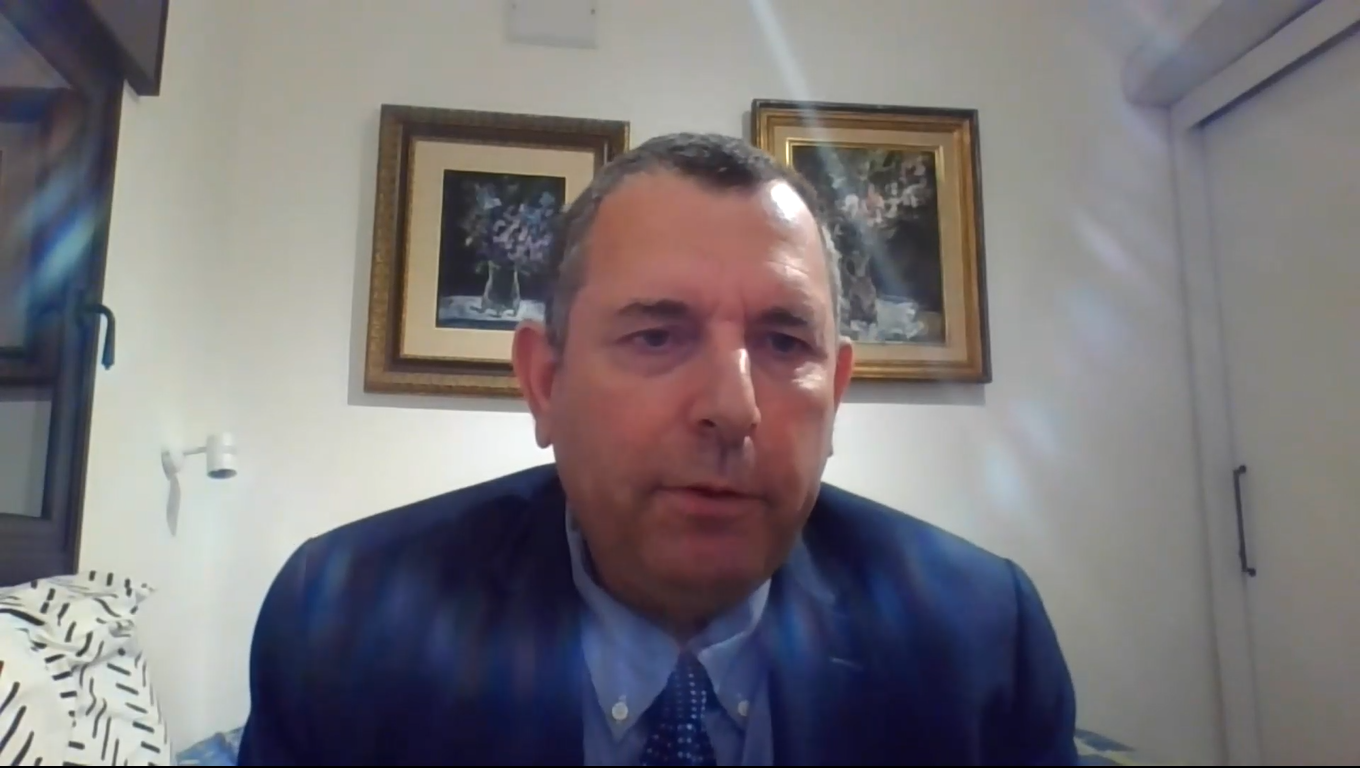
Featured Item

No end to pandemic until everyone is vaccinated – Israeli minister
“The price of vaccines is so ridiculously low in comparison to the terrible economic damage of every day of a national closure. The argument [of cost] is a nuisance. We have to find a way to vaccinate the whole world.”
So said Dr Asher Salmon, the head of the department of international relations at the Israeli ministry of health. He was addressing more than 200 journalists in an online international media briefing held on Thursday, 14 January, and hosted by the Israeli ministry of foreign affairs.
“We won’t get rid of the pandemic without vaccinating every community in the world,” he said. “All of us should do the best we can to get it done.”
To date, about two million Israelis have been vaccinated, and more than 100 000 of them have already received their second dose of the Pfizer vaccine. This while the country is currently in another hard lockdown with more than half a million active cases of the virus.
Salmon outlined Israel’s vaccination campaign in detail, explaining how the Jewish state had made the necessary preparation for its country-wide immunisation project.
“We started to investigate vaccines quite early,” he said. “In April, we had our first calls with Astra Zeneca. We then had discussions in summer with Moderna, with whom we came to our first agreement. Pfizer came into the practical line quite late, but it was willing to push into Israel a substantial amount of vaccine quite early.
“It was clear that we’d have to prioritise groups of individuals in the country. We decided to begin with medical personnel, but at the same time begin vaccinating everyone above 60.
“While many European countries started with older ages [over 75], we decided to start with younger groups as we needed to create a shift in people’s understanding that it’s the right thing to be vaccinated.”
First responders such as ambulance drivers and police have also been among the first to receive the vaccine, some of them getting the shot at the end of the day after those with appointments have received their dose.
“We always try to find out how many doses are left to diminish waste,” said Salmon. “People are being vaccinated at stadiums and other community centres, so we send paramedics and police brigades to these places at the end of the day to get a shot. Nearly 90% of fire brigades across the country have been vaccinated just by using this standby system.”
Beyond wastage, Salmon explained that logistical issues also proved a considerable hurdle.
“The Pfizer vaccine should be stored at -80 degrees,” he said. “It was clear that we needed a designated storage space. We decided to have a national storage space at the logistics site of Teva, the largest pharmaceutical company, from which we ship the doses daily.
“When the vial is defrosted, it has a short shelf life and needs to be used within 120 hours. We try not to pass 96 hours, and aim to keep it at -2 to -8 degrees in that time.”
The vaccine is also extremely sensitive to movement, making shipping another challenge. According to Salmon, each week’s distribution plan is prepared at the weekend, with each of the 350 vaccination points across the country receiving a shipment three times a week in the early hours.
“We needed to create smaller cases for distribution,” he said. “A standard Pfizer case has 960 doses inside, so we had to create smaller cases to distribute across more remote locations.
“It was also evident that we had to create an accurate information system to document side effects and administration. People can book an appointment online or via an app, and the national central registry gets information about every person vaccinated and each individual receives a notice that they have been vaccinated and are told when to go for the second dose.”
As part of Israel’s national campaign, call centres have also been established. These enable the ministry to reach out to the elderly and ultra-Orthodox communities, field questions from the public, and remain in contact with healthcare practitioners who may have questions about the vaccination.
The Arab population is also a priority, Salmon said.
“We are putting a lot of effort into creating trust and getting the Arab population vaccinated,” he said. “We are running vaccination programmes in every centre from north to south, even in Bedouin villages in the Negev. It’s a big challenge to convince Arab families to bring elderly people for vaccination.”
As for citizens of the Palestinian Authority (who are not Israeli citizens and therefore not eligible for vaccination), Salmon stressed that the government has an interest in getting them vaccinated as soon as possible.
“It’s important from a humanitarian point of view and because they are our closest neighbours,” he said. “About 100 000 Palestinians pass into Israel daily, and it would be impossible to get rid of the pandemic without seeing them vaccinated. Right now, we are vaccinating Israeli citizens.
“We are aware of a major effort being done for the Palestinians,” Salmon said, “and a big contract is being signed with Russia next week to get millions of vaccines to the Palestinians in coming weeks. I do believe they will be vaccinated before some European countries.”
Salmon stressed that the vaccine rollout owes much of its success to co-operation between the ministry of health and health maintenance organisations (HMOs), and the flexibility of Israel’s approach.
“We are working as a multi-agency taskforce,” he said. “We not only bring healthcare providers to the table but also the police, ministry of defence, and many other agencies. The process is centralised but also gives a lot of responsibility to HMOs running community efforts, including clinics.
“Every agency or body has its own strength and you must use it properly in a centralised system.”










